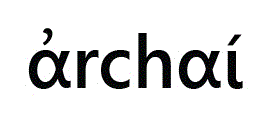Abstract:
Perhaps the most obvious and, for us, the most surprising stylistic feature of Xenophanes’ surviving fragments is the fact that they were written in verse. Whilst this general feature has received much comment and explanation, a more fine-grained analysis of his use of metre has been somewhat lacking. There are at least two factors which have contributed to this lack: first, the primarily philosophical focus of most modern scholarship on Xenophanes, which has been more interested in content than form; and second, the dominance of New Historicism in archaic Greek literary scholarship of recent decades, which, with its emphasis on the ideological force and social role of early Greek hexameter and elegy, has also tended to eschew an analysis of precise formal features. When we do find detailed discussion of metre, it tends to be in the service of uncovering the composition-processes of poets, rather than elucidating the effects they aimed to generate. Consequently, the present contribution aims to fill a gap in Xenophanean scholarship by enriching our appreciation of his sometimes-maligned metrical artistry (M. L. West described him and Euenus as “the clumsiest versifiers” out of the elegists and iambicists). It thus joins two trends in recent Greek literary scholarship: the renewed attempt to appreciate archaic texts as literature - rather than merely as documents for social history or historical anthropology; and the exploration of the significance of non-semantic formal features, which can convey as much ideological content as the claims, narratives and imagery of the text.
Xenophanes; Verse; Presocratics; Style
